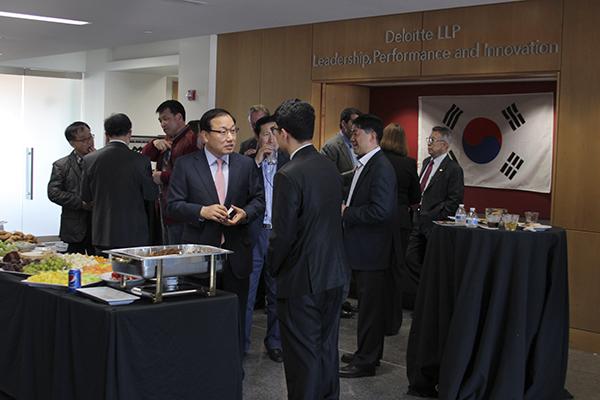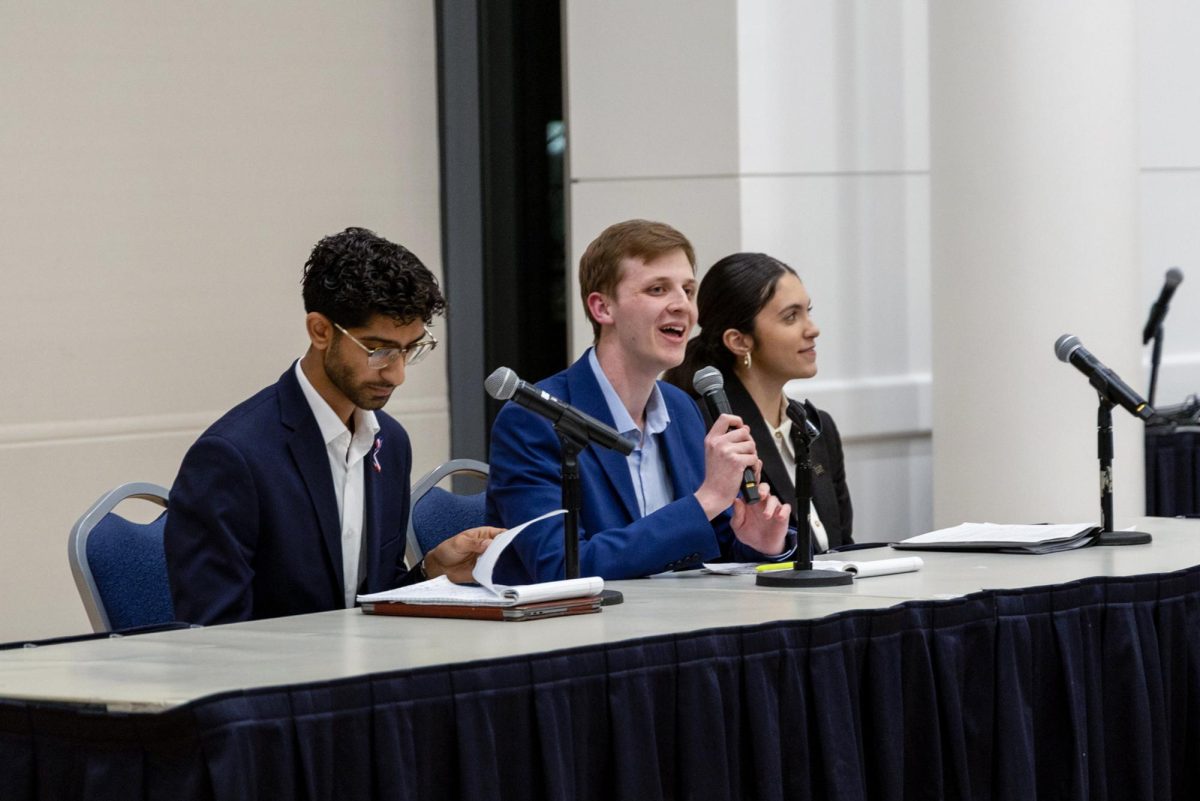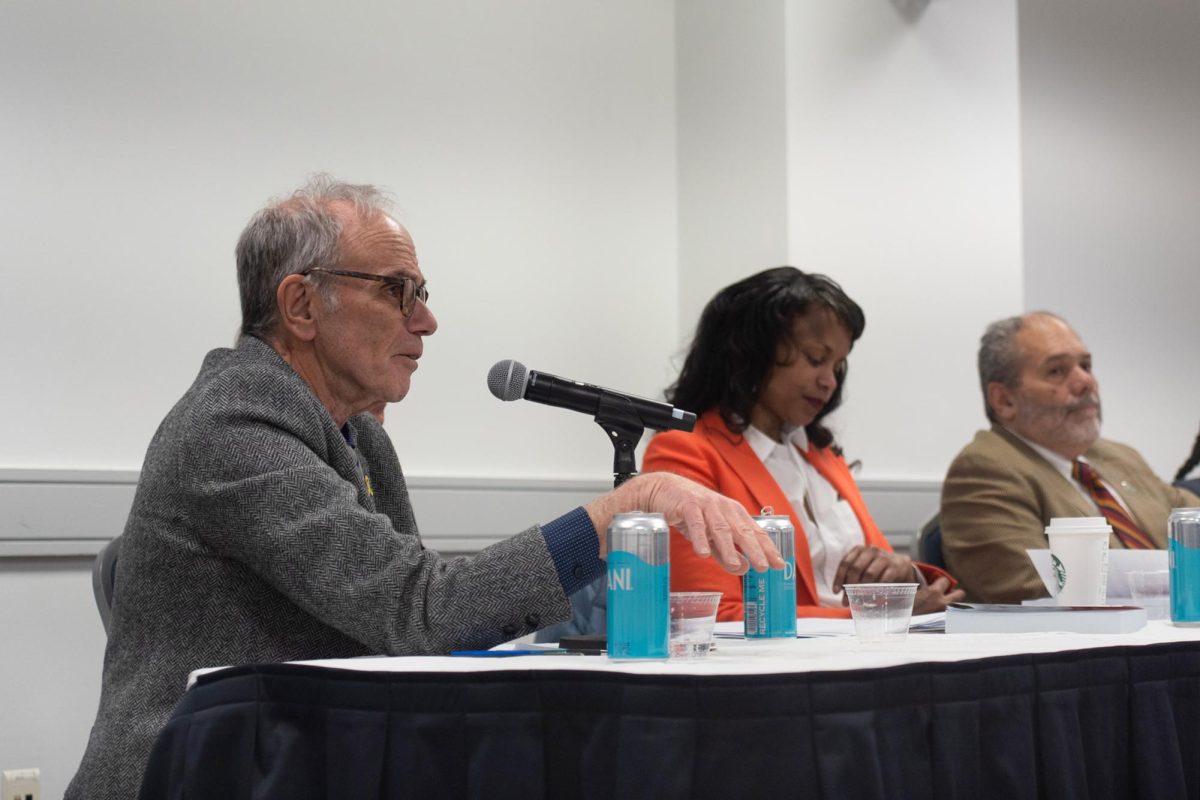Updated: April 28, 2015 at 5:49 p.m.
After pulling away from major plans to launch a campus in China more than a year ago, GW is turning to one of its global alumni hotspots — South Korea.
Faculty and higher education experts say Asia has become a popular place for American universities to set down roots because of its prime location and economic, political and global reach. And at a time when South Korea is opening itself up to outside firms, GW fits the bill to enter into the emerging market with goals to strengthen its partnerships with foreign nations.
The University has already targeted South Korea as a priority location to start new programs and has been building connections with business leaders there as part of the Korean Management Institute, which launched earlier this month, and through partnerships with the School of Engineering and Applied Science. GW has more than 900 alumni living in South Korea, according to GW’s alumni website.
Danny Leipziger, an international business professor, said more than 1,000 Korean students have received a master’s in business administration from the University over the last 25 years, an indication of a strong bond between the country and GW. He said GW’s focus on South Korea could allow for unique teaching moments about economics.
He said the rapid economic growth South Korea has undergone in recent years has been a key example for students pursuing degrees in areas like economics and business.
“Some of the lessons of successful development is what [professors] focus on, particularly on countries that are lower-middle income countries that want to see their economic growth improve,” he said. “So I think there are a lot of avenues for additional cooperation that the business school could look at, and the University more generally.”
The document detailing the University’s plans to open the management institute in South Korea said there possibly could be talks about starting a campus there in the future, but officials have said conversations about another campus are very preliminary. University spokeswoman Maralee Csellar confirmed that the University does not have plans to launch a campus in South Korea.
Provost Steven Lerman declined through a University spokeswoman to comment on whether GW is shifting focus in programming from China to South Korea, how GW’s alumni base in South Korea influenced its interest in the country, the University’s current focus in programming, how the business school’s relationship in South Korea relates to the one in China or students’ interest in programs in South Korea.
George Mason University has a satellite campus in South Korea and peer schools like New York University have planted roots in Asia with campuses in Dubai and Shanghai.
A business professor, who spoke under the condition of anonymity, said GW shouldn’t consider a satellite campus in South Korea because the country has enough of its own prestigious schools.
The professor said Korean students don’t want to attend GW while still living in their home country but would rather come to D.C. for the full immersion.
“The time they spend in their home country is not the time they find most exciting,” the professor said.
Philip Altbach, a professor and the director of the Center for International Higher Education at Boston College, said students in South Korea could be interested in attending an American university in their home country because of an attraction to “brand-name” universities, like GW.
“There’s an advantage to being a foreign name-brand institution for local people,” Altbach said. “In Korea, they’re name-brand conscious, as they are in China.”
He added that China is still the most popular for international programs, more so than South Korea, because of its influence in the world’s economy. But South Korea’s private sector has become more attractive for foreign businesses to set up in the nation, Altbach said.
“China is still the big fish,” Altbach said. “The Korean government has put out the welcome mat for overseas institutions.”
GW started working with China under former business school dean Doug Guthrie. As a fluent Mandarin speaker and expert on the country, Guthrie made solid connections with influential executives in the nation, but those responsibilities fell to other University officials and GW’s China Committee to keep when Guthrie was fired and left GW in 2013.
A challenge of running any sort of relationship between America and a campus abroad is the uniformity of the education, Altbach said. The University would have to hire faculty to teach courses on a satellite campus and make sure the students are experiencing the “brand” that GW markets.
“There aren’t that many American faculty who are interested in going for more than one week,” Altbach said.
Karin Fischer, a higher education expert and a senior reporter for The Chronicle of Higher Education, said South Korea is experiencing growth in economic, political and strategic sectors and gaining influence in Asia, making universities bordering the nation hone in on what the country has to offer.
“Korea, I think, has been trying to make some more aggressive efforts in the last couple years to recruit more foreign universities,” Fischer said.
Fischer added that universities don’t tend to launch satellite campuses because of the legal complexities and difficulties that come along with maintaining standards similar to the university in America.
She added that GW’s large alumni base is an asset to the University in trying to establish connections because it’s beneficial “having people on the ground who know the University and kind of act as connectors.”
Lila Weatherly contributed reporting.
This post was updated to reflect the following clarification:
The Hatchet reported the University has targeted South Korea as a top focus, mentioning the Korean Management Institute as an example. The institutes works with executives in South Korea, but is located in D.C.







